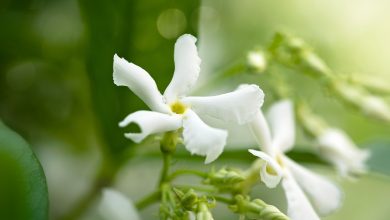How often and how to water my rue?
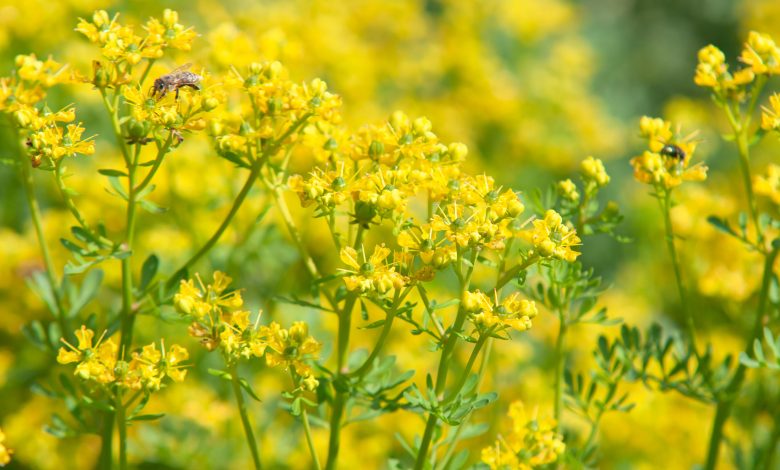
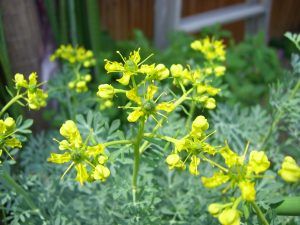 Rue is a plant with few demands in terms of care that you can easily have in the garden, even if you are a beginner.
Rue is a plant with few demands in terms of care that you can easily have in the garden, even if you are a beginner.
Its characteristics have given it a special place as a medicinal and support plant in energy matters, since it is said that it is capable of absorbing the negative.
It will accompany you throughout the year because it is perennial and thanks to its beautiful and numerous blooms, you will have some butterflies fluttering around.
How is rue irrigated so that it reaches its full potential? If you have doubts regarding this topic, after reading this content, all of them will be dispelled.
Important points when watering a rue:
- Irrigation frequency: for summer days, irrigation can be set to 3 weekly. The rest of the year it will be enough with 1 a week. If it rains, you don’t need to water.
- Irrigation method: by dripping for rue planted in the garden and with a watering can if the rue is in a pot.
- Optimum time of day for irrigation: early in the morning.
- Identify excess water: weak stems, pale leaves, fungal rot.
- Identify lack of water: the plant tends to dry out and the drought of the land and of the plant itself opens the door for certain types of pests to establish themselves.
What irrigation needs does rue have?
Rue is a plant that maintains a balanced requirement in terms of irrigation. That is, neither too wet nor too dry.This implies that you must regularize the irrigations so that you provide a beneficial amount of water, taking care that the soil is a little dry before applying the next one.
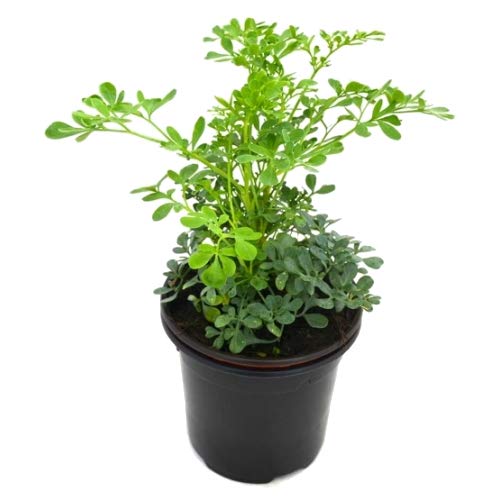
When irrigation is well managed, the plant will look lush and with that characteristic green that is an ornamental gift for any space.
How can we detect lack of irrigation in rue?
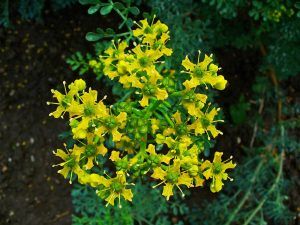 The lack of irrigation in the rue can give rise to many problems, starting of course with the risk that the plant dries out and you lose it.
The lack of irrigation in the rue can give rise to many problems, starting of course with the risk that the plant dries out and you lose it.
But this dry environment can also give rise to certain pests establishing themselves in its structure and damaging it.
Take into account that the flowering of the rue is very striking (that’s why the butterflies arrive) and that makes many organisms feel interested.
If you have forgotten to water for a few days, just do a deep watering the first time and then continue with the frequency you already have established.
How often should we water the rue?
Rue irrigation is more or less easy to establish because it does not need very constant water.On summer days it is possible to advance in this matter with 3 waterings a week, waiting between one and the other for the surface layers of the earth to dry.
In times when the temperature drops, the frequency of irrigation should also drop and it will be more than enough with 1 watering a week.
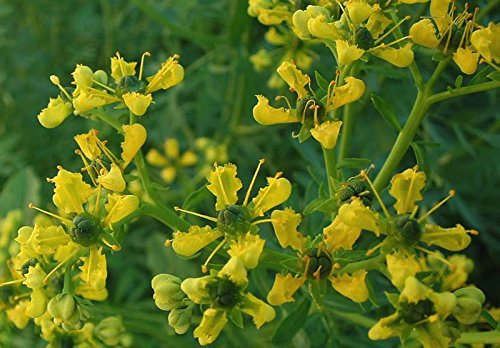
If the season is rainy and it receives this water naturally, irrigation will be suppressed at that time until it is needed again. Consider that although it is not very demanding in this matter, an irrigation deficit will cause a lot of damage.
What is the best way to water rue?
The best way to water the rue is with the use of a drip system if it is in the garden or through a watering can in the case of pots.With these methods we ensure that the plant will receive a small amount of water in each cycle and that it will be able to manage it according to its requirements.

Hose irrigation is not recommended because it can cause waterlogging quite quickly. The only way to use this system is by fitting a special outlet nozzle that regulates the amount of water it offers in each cycle.
How do we detect excess water in rue?
When rue is subjected to excess irrigation, it begins to show weakness in the stems that bend, starting with the newest ones first. The leaves also undergo changes, passing from the characteristic green to a lighter one and, sometimes, turning yellow or brown.
If the plant is already in bloom, it is possible that the flowers begin to fall or that they remain attached to the plant but without vigor. But the most serious problem comes with fungi, which love spaces rich in moisture and are capable of causing rot throughout the structure.
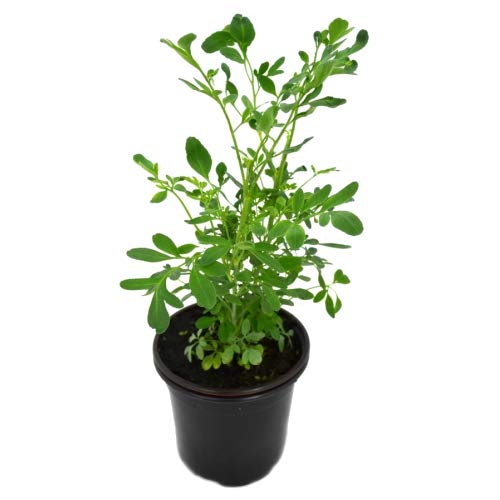
The normal thing is that the problems start from the roots, gradually occupying the other areas of the plant. Rue is an ideal plant for beginners because of the few demands it has. In fact, irrigation is one of the actions that generates less work.
This means that with very little attention you will enjoy a noble plant that will fill your garden with color and that you can take advantage of at a medicinal level.
Bibliographic references
- In vitro culture of rue (Ruta graveolens L.), lemon balm (Melissa officinalis L.) and lemon verbena (Aloysia tryphilla (LHér.) Britton, AT Schröder – 2002 – cybertesis.uach.cl
- Acclimatization of Ruda (Ruta Chalepensis L), J Irigoyen Rodríguez – 2005 – bibliorepositorio.unach.cl
- Cultivation of medicinal plants, M Madueño Box – 1973 – sidalc.net
- Cultivation of aromatic and medicinal herbs, S Siura, R Ugás – 2001 – repository.inia.gob.pe

![Photo of Pear Tree Pests and Diseases: [Detection, Causes and Solutions]](https://www.complete-gardening.com/wp-content/uploads/2022/08/pear-tree-pests-and-diseases-detection-causes-and-solutions-390x220.jpg)
![Photo of List of [16] Indoor Plants that Bloom All Year](https://www.complete-gardening.com/wp-content/uploads/2021/06/kalanchoe_1583756127-390x220.jpg)
![Photo of How to Plant Passion Flower in Your Garden: [Complete Guide]](https://www.complete-gardening.com/wp-content/uploads/2022/08/how-to-plant-passion-flower-in-your-garden-complete-guide-390x220.jpg)
